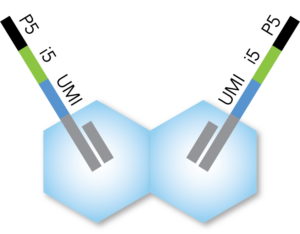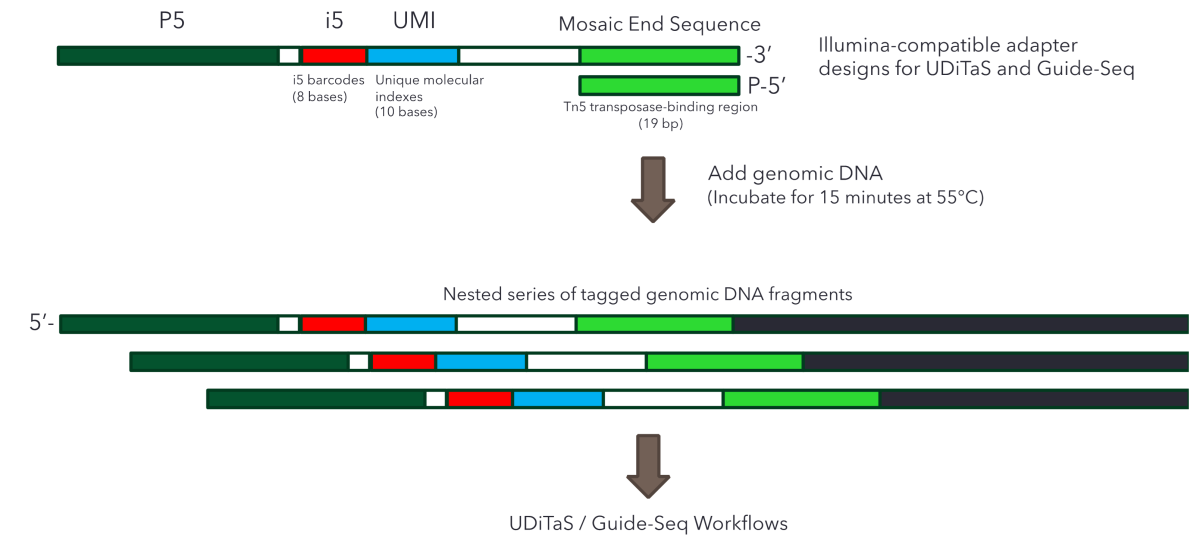Tagify i5 UMI adaptor-loaded kits use adaptor-loaded transposase reagents to fragment genomic DNA for highly multiplexed, tagmentation-based NGS library preparation. These kits provide a consistent supply of fully QC’d reagents and a certificate of analysis for reproducible tagmentation and confidence in the quality of results. This solution provides the flexibility to perform a variety of on- and off-target gene editing QC analyses including detection of structural changes such as small and large indels, inversions, and translocations. Tagify allows for scalable library preparation, helping researchers accelerate their gene editing QC efforts, and the kit's i5 barcode design allows for seamless integration with Illumina platforms.
Custom-loaded transposases are also available for researchers that require maximum assay flexibility. They come with Illumina compatible barcodes, universal adaptors, UMIs, and a custom oligo sequence. Contact our seqWell specialists for further information on these customised products.
Tagify i5 UMI adaptor-loaded transposase
 |
|
![]()
Benefits
- Fast and reliable QC: Minimise time spent on quality control with streamlined workflows and rapid sequencing.
- High sensitivity and accuracy: Detect both on-target and off-target edits with exceptional precision.
- Cost-effective solution: Reduce costs associated with gene editing QC by using a single kit for multiple applications.
- User-friendly protocols: Easy-to-follow instructions and simplified workflows, reducing training requirements.
- Versatile compatibility: Works with a variety of gene editing techniques, including CRISPR.
- Comprehensive data insights: Generate detailed reports to support confident decision-making in your research.
|
Tagmenting DNA using Tagify i5 UMI loaded transposases requires a single 15-minute incubation at 55°C followed by reaction clean-up. Tagged DNA can then proceed through further NGS library preparation steps and integrate into downstream applications such as gene editing assays like UDiTaS, RGEN, TTIS-seq, CHANGE-seq and others. |
|
Applications
- CRISPR/gene editing QC: Verify editing efficiency and detect any off-target mutations.
- Genetic Integrity Check: Ensure that gene edits have not compromised the overall genome.
- Gene Knockout Verification: Confirm successful knockout of target genes.
- Gene Editing Efficiency Analysis: Quantify and evaluate editing efficiency across samples.
- Multiplex Gene Editing: Assess multiple gene edits within a single run for high-throughput projects.
Material for download
seqWell library preparation kit comparison guide


